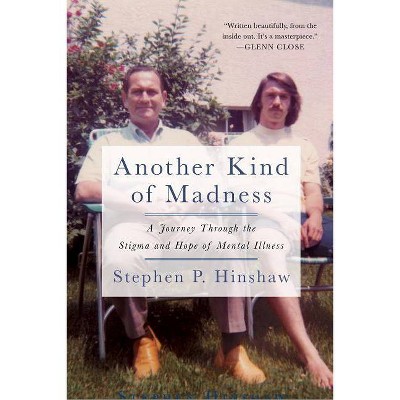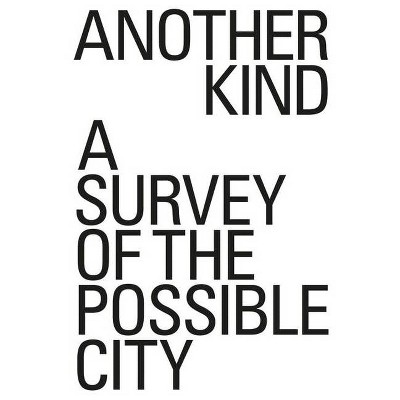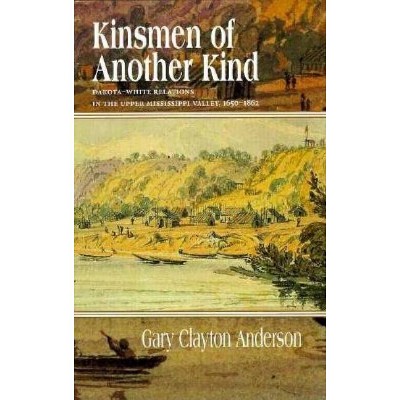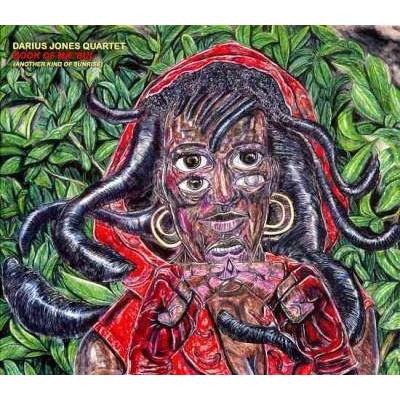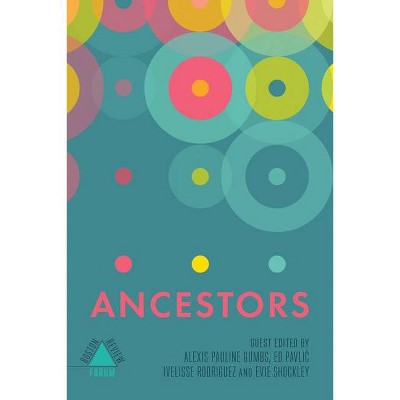Another Kind of Madness - by Ed Pavlic (Paperback)
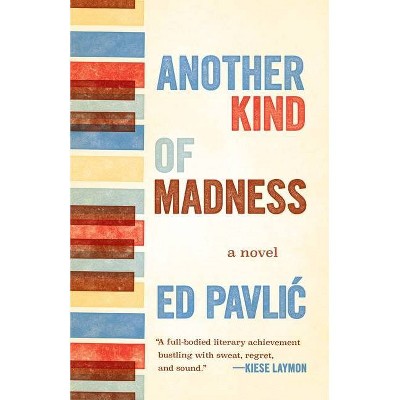
Similar Products
Products of same category from the store
AllProduct info
<p/><br></br><p><b> About the Book </b></p></br></br><b>"A full-bodied literary achievement bustling with sweat, regret, and sound." --KIESE LAYMON</b><p/><br></br><p><b> Book Synopsis </b></p></br></br><b>"A full-bodied literary achievement bustling with sweat, regret, and sound." --KIESE LAYMON</b><br> Ndiya Grayson returns to her childhood home of Chicago as a young professional, but even her high-end job in a law office can't protect her from half-repressed memories of childhood trauma. One evening, vulnerable and emotionally disarrayed, she goes out and meets her equal and opposite: <p/> Shame Luther, a no-nonsense construction worker by day and a self-taught piano player by night. The love story that ensues propels them on an unforgettable journey from Chicago's South Side to the coast of Kenya as they navigate the turbulence of long-buried pasts and an uncertain future. <p/> A stirring novel tuned to the clash between soul music's vision of our essential responsibility to each other and a world that breaks us down and tears us apart, <i>Another Kind of Madness</i> is an indelible tale of human connection.<p/><br></br><p><b> Review Quotes </b></p></br></br><br><b>Praise for <i>Another Kind of Madness</i></b> <p/> "The pleasure of music and ache of language drive [Pavlic's] first novel. . . . Characters feed off one another like improvisatory musicians, and, like <i>Finnegan's Wake</i>, the book begins at the end and ends just before the beginning."<b>--<i>Minneapolis Star Tribune</i></b> <p/> An ode to Chicago, Kenya, and soul music as humanity's worldwide hum . . . In Ed Pavlic's remarkable and groundbreaking novel, <i>Another Kind of Madness</i>, literary tropes and images are pried loose. <b>--<i>Colorado Review</i></b> <p/> "[A] beautiful debut novel . . . Pavlic's prose is simple yet lyrical, which strikingly depicts not only the intricacies of Ndiya and Shame's relationship, but also a city and its history, as seen through architectural turnover and musical evolution. This is a moving novel about two people finding the strength to move forward together."<b>--<i>Publishers Weekly</i></b> <p/> "Pavlic delivers a soulful debut novel about love and restoring hope. . . . In prose by turns lyrical and mesmerizing, Pavlic taps deeply into what it means to be Black in America, tossing in some surprising narrative tricks along the way."<b>--<i>Booklist</i></b> <p/> "This remarkable project, with its lyrical play and experimental structure, shrinks the moment between event and emotion--as well as the distance between text and experience--down to a dot."<b>--Africa is a Country</b> <p/> "<i>Another Kind of Madness</i> is a full-bodied literary achievement bustling with sweat, regret, and sound. Pavlic guides his language and characters into holes, onto planes, and through doors I've never read or imagined. Pavlic's narrative audacity and descriptive skill make every sentence and scene in <i>Another Kind of Madness</i> equal parts sorrow song, blues, funk, and of course jazz. I've not read a novel in recent history that so absolutely blurs, bruises, and complicates the space between mourning and morning. I am wonderfully devastated by the soul, scope, and execution of <i>Another Kind of Madness</i> and thoroughly inspired by this new kind of novel that is as at once wholly innovative and in deep conversation with so many Black American literary traditions."<b>--Kiese Laymon, author of <i>Heavy</i></b> <p/> "Reader beware. You imagine you hold a book in your hands, but it is a song, a rhythm of words and phrases that shudder the soul. You will wander with its wanderers, and every few minutes you will need to put the book down to hear again what you have just read. It is not enough that Chicago, Lamu Town--midwestern American, coastal Kenya--and other worlds shift and shimmer and suck you into the madness the book proposes, but you will depart the text with its lyrics ringing in your heart."<b>--Yvonne Adhiambo Owuor, author of <i>Dust</i></b> <p/> "A fiercely vibrant meditation on how the interior life that eludes us returns through the sounds, secrets, and graces of others, through which Pavlic rekindles, in his inimitable way, the meanings of 'lyric' and 'soul.'"<b>--Emily J. Lordi, author of <i>Black Resonance</i></b> <p/> <i>"Another Kind of Madness</i> is a deliriously gorgeous novel. It is both hallucinatory and cogent, both African and Western, both stormy and gentle, and painted with a language that vibrates the bones. Pavlic, whether we're talking poetry or prose, is a master vernacularist, an adept cartographer of the human heart, and an artist with such subtle observational dexterity that one might imagine he's directly in touch with the sublime."<b>--Reginald McKnight, author of <i>He Sleeps</i></b> <p/> "Like a song that lingers in memory, <i>Another Kind of Madness</i> offers us a narrative that both moves and refuses to move, that leaps and at times seems to vanish. By this lyrical rhythm, Pavlic defines diaspora as here but also everywhere and nowhere. In these pages, Black music sounds and surrounds experience like a mysterious house people long to live in but can't find, a quest where they find themselves ever more deeply involved."<b>--Jeffery Renard Allen, author of <i>Song of the Shank</i></b> <p/> <b>Praise for <i>Who Can Afford to Improvise? James Baldwin and Black Music, the Lyric and the Listeners</i></b> <p/> "If you read books, sometimes or all the time, for the quality of their sentences (and what writer doesn't? why else would anyone want to be a writer?), <i>Who Can Afford to Improvise</i> is even more essential. Pavlic is fucking fearless about how he goes about it, as fearless as any contemporary musician I can think of, as fearless as some of the greats."<b>--<i>Counterpunch</i></b> <p/> <b>Praise for <i>Let's Let That Are Not Yet</i></b> <p/> "As if blown through Coltrane's sax, Pavlic's words offer hope for a consciousness that will repair the world. Like Coltrane, Pavlic makes the deed 'intimate and soulful'. . . . Pavlic's poems still seduce like overheard confidences, but they now extend to prose narratives and reports from occupied territories, as James Baldwin once framed it. Pavlic's text offers a lyric theater of breaking news from our daily infernos."<b>--<i>New York Times</i></b> <p/> "Pavlic blends memoir and lyric in this genre-bending collection, fearlessly exploring the personal and political boundaries of race, history, and heritage."<b>--<i>Publishers Weekly</i> (starred review)</b> <p/> <b>Praise for <i>Visiting Hours at the Color Line</i></b> <p/> "The abundant second-person addresses of Pavlic's <i>Visiting Hours at the Color Line</i> signal these remarkable poems are in conversation with us: our culture, our history, our ghosts. His is a Hopkins-like sprung rhythm of, not only syntax, but edifying consciousness pulsing in a language of idiomatic lyrics and impressions. Even after enraptured multiple readings, I am incapable of succinctly praising this poet's immense talent and this new book's urgent, beautiful complexities."<b>--Terrance Hayes</b> <p/> "Ever since I discovered Pavlic's poetry, I find myself measuring other authors against the steady stream of his voice, and the heart and politics one finds in his short and long lines--the very sound of freedom. There are two or three writers one always looks forward to reading, always, and Pavlic, especially in <i>Visiting Hours at the Color Line</i>, is one of them."<b>--Hilton Als</b> <p/> "To fully enjoy the sweet complexity and gravity-defying genre blending in Pavlic's <i>Visiting Hours at the Color Line</i>, one has to first put aside fears of postmodern tricksterism and fake-outs, then come to believe that 'talk' happens without words. Inside his staunch, idiomatic phrasings and syntactic figurations is a heart bursting with sharp observations and a desire to read the nonverbal signs that point to and record our supreme humanity. Such poetry is deeply personal and masterfully arranged."<b>--Major Jackson</b> <p/> "The tension in Pavlic's poems is a language-cable wrought to swing you out over unnerving spaces, let you see and hear what they really hold, and bring you back up more alive than you were before."<b>--Adrienne Rich</b> <p/> "There's a beauty embodied in this poet's straightforward journey."<b>--Yusef Komunyakaa</b> <p/> "Pavlic turns to canonical images and tropes but adds blues, jazz, jargon, and slang in a distinctly contemporary and vigorous American idiom. . . . The final long piece, part of the series of prose poems called 'Verbatim, ' is marvelous. A dialogue, more play than poem, it is playful, reminiscent of Beckett but more explicitly philosophical. By itself it makes this entire intriguing collection worthwhile."<b>--<i>Booklist</i></b> <p/><br><p/><br></br><p><b> About the Author </b></p></br></br><b>Ed Pavlic</b> is the author of eight collections of poems, including <i>Visiting Hours at the Coloring Line</i> and <i>Let's Let That Are Not Yet: Inferno</i>, both of which were winners of the National Poetry Series. He has published essays, poems, fiction, and dramatic pieces with dozens of outlets, including the <i>New York Times</i>, <i>Boston Review</i>, <i>Harvard Review</i>, <i>Ploughshares</i>, and <i>Callaloo</i>. His critical work includes <i>'Who Can Afford to Improvise?' James Baldwin and Black Music, the Lyric and the Listeners</i> and <i>Crossroads Modernism: Descent and Emergence in African American Literary Culture</i>. A recipient of the Author of the Year Award from the Georgia Writers Association and a fellowship from the W.E.B. Du Bois Institute at Harvard University, Pavlic is Distinguished Professor of English and African American Studies at the University of Georgia.
Price History
Cheapest price in the interval: 15.59 on October 27, 2021
Most expensive price in the interval: 15.59 on November 8, 2021
Price Archive shows prices from various stores, lets you see history and find the cheapest. There is no actual sale on the website. For all support, inquiry and suggestion messages communication@pricearchive.us
